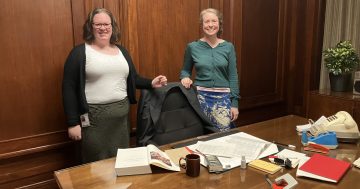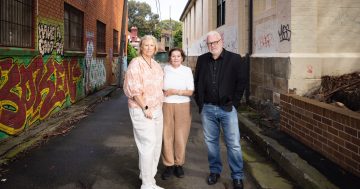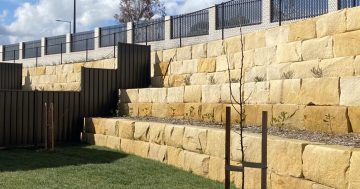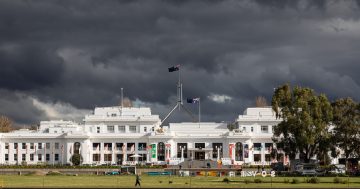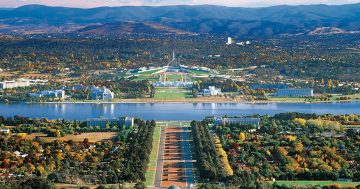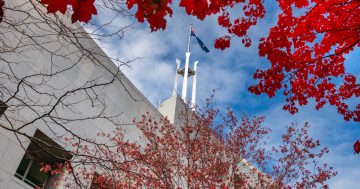Reviewed by Robert Goodman.
By Leigh Bardugo, Hachette, $29.99.
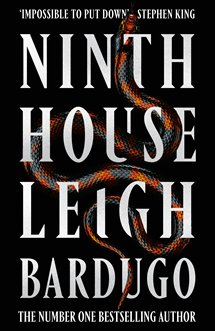 There are so many magical-academy-style books that they could probably form their own sub-genre. The Harry Potter series is probably the most popular and best-known of these, but there are plenty of examples of the form. Generally, magical academy books are aimed at the YA market following the JK Rowling model of ‘this is like your school only with magic’. But in the years following Harry Potter, the magical academy book has started to grow up. Lev Grossman’s Magician series concerned itself with a group of twenty-somethings attending a fictional magical college and was aimed at an adult market. Leigh Bardugo takes this trope a step further in her new novel Ninth House. The university setting is a real place – Yale in New Haven, Connecticut – but she gives the place a magical twist and delves into very adult themes.
There are so many magical-academy-style books that they could probably form their own sub-genre. The Harry Potter series is probably the most popular and best-known of these, but there are plenty of examples of the form. Generally, magical academy books are aimed at the YA market following the JK Rowling model of ‘this is like your school only with magic’. But in the years following Harry Potter, the magical academy book has started to grow up. Lev Grossman’s Magician series concerned itself with a group of twenty-somethings attending a fictional magical college and was aimed at an adult market. Leigh Bardugo takes this trope a step further in her new novel Ninth House. The university setting is a real place – Yale in New Haven, Connecticut – but she gives the place a magical twist and delves into very adult themes.
Ninth House starts with a killer first sentence and a dizzying cold open:
By the time Alex managed to get the blood out of her good wool coat, it was too warm to wear it.
The prologue is full of hints and ideas. Alex is a ‘candidate’ for something called Lethe and she is a candidate for whom ‘standards have been relaxed’. She is wounded and desperate and her ‘trouble’ began the night Tara Hutchins died. From there, Bardugo takes readers back to that night and its aftermath but also further, to Alex’s initiation into the world of Lethe and her troubled past.
Bardugo does away with exposition early on, building her world by immersing the reader in Alex’s life. Little is directly explained and it takes a few chapters for the world to make sense, giving the reader a taste of Alex’s own initiation into it. Alex’s guide and mentor is Daniel Arlington, or Darlington. But when the book opens, Darlington has disappeared and Alex is on her own. Flashback chapters take readers to Alex’s first meeting with Darlington and his demonstration that magic is real:
This is why [Darlington] had done it, not because of guilt or pride but because this was the moment he had been waiting for: the chance to show someone else wonder, to watch them realize [sic] that they had not been lied to, that the world they’d been promised as children was not something that had been abandoned, that there really was something lurking in the wood, beneath the stairs, between the stars, that everything is full of mystery.
The power that he shows her is anchored by the magical nexus of New Haven and the eight ‘houses’ at Yale, who each purvey of a different type of magic. For example, Skull and Bones, a club that has alumni like George W Bush and William Taft, excels at divination. Manuscript House trades in glamours and false appearances. The magic is wielded by students but for the financial and political benefit of Yale alumni.
All of the societies’ houses were built at nexuses of magical power. No one was quite sure what created them, but it was why new tombs couldn’t simply be built… New Haven had an extremely high concentration of sites where magic seemed to catch and build, like cotton candy on a spool.
The House of Lethe, which has taken Alex in and given her a ‘free ride’ to Yale, was created to enforce the rules and keep the students in check.
We are charged with monitoring the rites and practices of any senior societies trafficking in magic, divination or otherworldly discourse, with express intent of keeping citizens and students safe from mental, physical, and spiritual harm and of fostering amicable relations between the societies and school administration.
The real world setting for Ninth House gives it all an air of authenticity. These Yale societies do exist (although Bardugo makes clear up front that this is all in her imagination) and there is a feeling through the book that this could be real, in an alternate universe. The setting allows Bardugo to consider how the extremely privileged students at Yale might behave if, in addition to their towering entitlement, they also had access to arcane powers.
Alex herself has a chequered past, including dropping out of school and becoming involved in drug trafficking. She comes from a very different world to most of her fellow students. But the reason for her fall from grace is the same reason she has been recruited by Lethe – she can see the dead, or Grays as they are known. This ability makes her extremely valuable as a magical referee. It also puts her in danger when she starts to question the status quo.
The plot of Ninth House revolves around Alex’s investigation of the murder of Tara Hutchins. There are plenty of other mysteries swirling around her, including how and why Darlington disappeared, and a murder from the 19th century. Alex is a square peg in the round hole of Yale, butting up against the establishment and constantly out of her depth. But that also makes her effective at getting the answers she needs.
While Bardugo’s previous novels were aimed at the YA market, this is definitely a book for adults. Ninth House trades in dark themes – murder, physical and sexual abuse, drug-taking and cyberbullying. This is fantasy on the horror side and there is plenty of creepiness and effective body horror. But it is still, in some ways, a coming of age story for Alex, or at least a story of how she comes to understand and manage the powers she was born with.
Ninth House is the complete package. Bardugo has created a robust and believable magic world and within that delivers a page-turning murder mystery. Alex, in the way of all good detectives, is always in trouble and in danger, and the stakes feel high and they feel real. The resolution of the mystery is satisfying in that it ties together a number of threads that had previously felt disparate. And after all of that, Bardugo still manages to land a cliffhanger that promises a further welcome exploration of this world.
This review first appeared in Newtown Review of Books.
This and over 450 more reviews can be found on Pile by the Bed.



